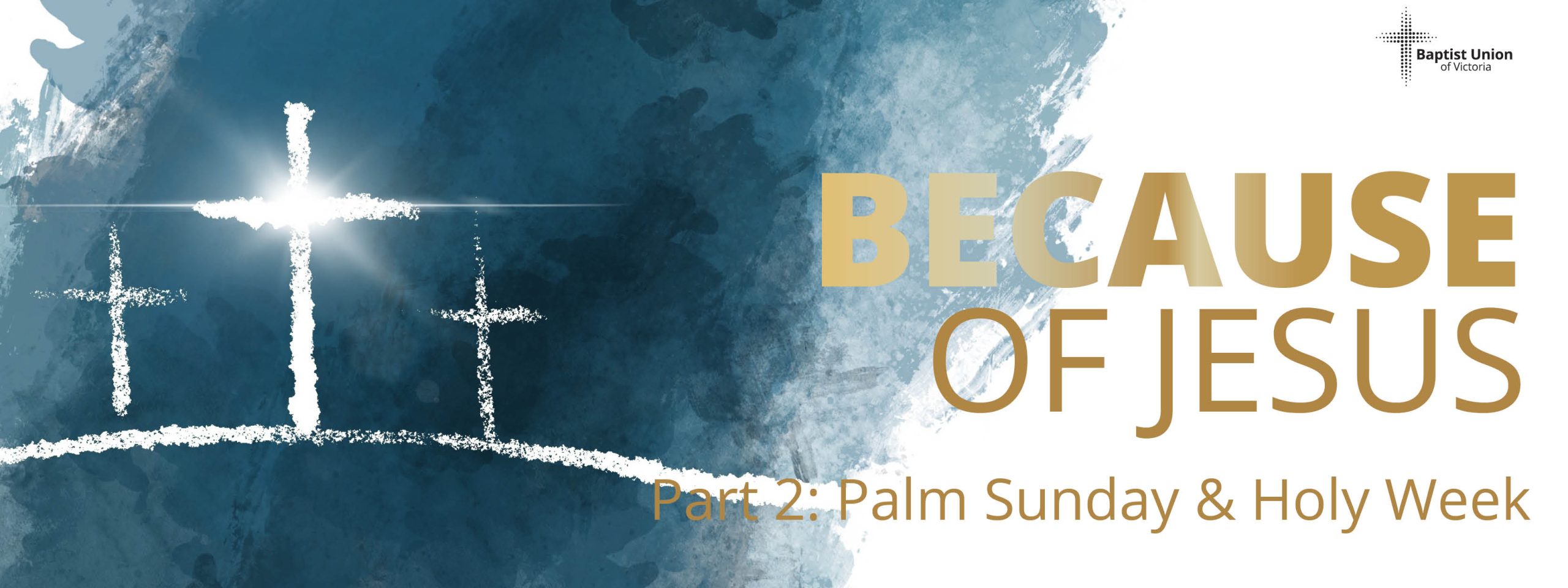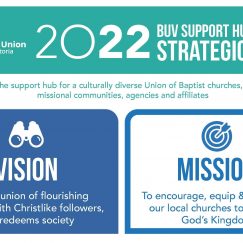20th February 2024
Because of Jesus – Part 2

Read Psalm 118:1-29
- List some ways in which you have experienced the goodness of God recently (v.1).
- What does it mean to you that “the Lord has been your salvation” (vv. 14,21)? What has God saved you from? What has God delivered you into?
- Take some time to express thanks to God (v.29).
Read Zechariah 9:9-11 and Luke 19:29-42.
My first professional job was with the South Australian Auditor-General’s Department. I was given an identity card that transformed me from being a timid young graduate trying to find his way in the complexities of bureaucracy and public finances, into an empowered official backed by the authority of the Auditor-General. In the name of the A-G, doors were opened; requests were met; guidance was given. In the name of the A-G, I had authority. I also had a purpose to pursue and an obligation to do that in ways that reflected the status, values, and directions of the Auditor-General. So it was as I came in the name of the Auditor-General.
I was reminded of this when reading the crowd’s acclamation of Jesus as he entered Jerusalem: “Blessed is the king who comes in the name of the Lord.” (Lk 19:38). This shout was drawn from the Messianic Psalm 118. It proclaimed Jesus to be the King from David’s line (Matt 21:9), sent by God as promised centuries earlier, to deliver the good things associated with the reign of God (Mk 11:10). In this festal procession, notably recounted in all four Gospels, Jesus came to Jerusalem as God’s anointed King, bestowed with the authority of God, to pursue the mission of God.
Luke tells us that Jesus arranged this event carefully. The ride on the colt was an “acted parable, a deliberate act of symbolic self-disclosure.”[1] Jesus accepted the crowd’s affirmation of his identity as Messianic King, but wanted to avoid them defining what kind of King he would be – how he would exercise the divine authority vested in him. He could have entered Jerusalem in the style of a Roman hero or Emperor, but instead, Jesus adopted the model of King described in Zechariah 9. Rather than exploiting the crowd’s fervor for personal and nationalistic advancement, Jesus chose to serve their needs for salvation into the gifts of God.
In coming on a colt, Jesus chose to come in humility rather than pride; to make peace rather than assert power; to serve rather than be served (Mk 10:45); to bless not only Israel, but all the nations (Zechariah 9:10). Notably, his first act on reaching the edge of the city was to weep over it, lamenting the blindness and resistance that kept it from entering into the gifts God had for it to enjoy. Coming in the name of the Lord in this way not only revealed Jesus’ identity and authority, but the nature and mission of God.
On the other side of Easter, Jesus commissioned the beneficiaries of his salvation to continue his mission to the nations (Matt 28:18-20; Acts 1:8). We Christians are sent into the world in the name of the Lord (2Cor 5:18-20). We are empowered by his authority but let us not invoke this with pride nor assert it as power over others. Rather, let us try to represent Jesus in the manner of Jesus – with humility, gentleness, compassion, seeking to serve rather than be served, and promoting peace.
Not only at Easter, but every day, we followers of Jesus are called to get on our colts of humble service and go into the situations before us “in the name of the Lord”, seeking through words and actions to extend to others the blessings of God.
QUESTIONS FOR REFLECTION AND DISCUSSION
- What stands out most to you in the Gospel accounts of Jesus’ entry to Jerusalem?
- What would you say it means to declare that Jesus “came in the name of the Lord”? What does it mean for you to go to others “in the name of the Lord” (2Cor 5:18-20)? What are some equivalents to “riding on a colt” in some of the situations in your life (home, neighbourhood, workplace, church)?
- The Baptist Union of Victoria has a vision of becoming a union of flourishing churches with Christlike followers transforming society. What does the account of the “Triumphal Entry” (Lk 19:29-42) say to us about this?
- What do you want people you know to discover in Jesus? How can you help them to discover and enter into those things?
- When you think of the area you live in, what might cause you to weep and pray (Lk 19:39-42)? Spend some time presenting those things to God in prayer.
Rev David Devine
[1] D.A. Carson, Matthew, The Expositor’s Bible Commentary, Vol.8, (Grand Rapids, Zondervan, 1984), 437.











